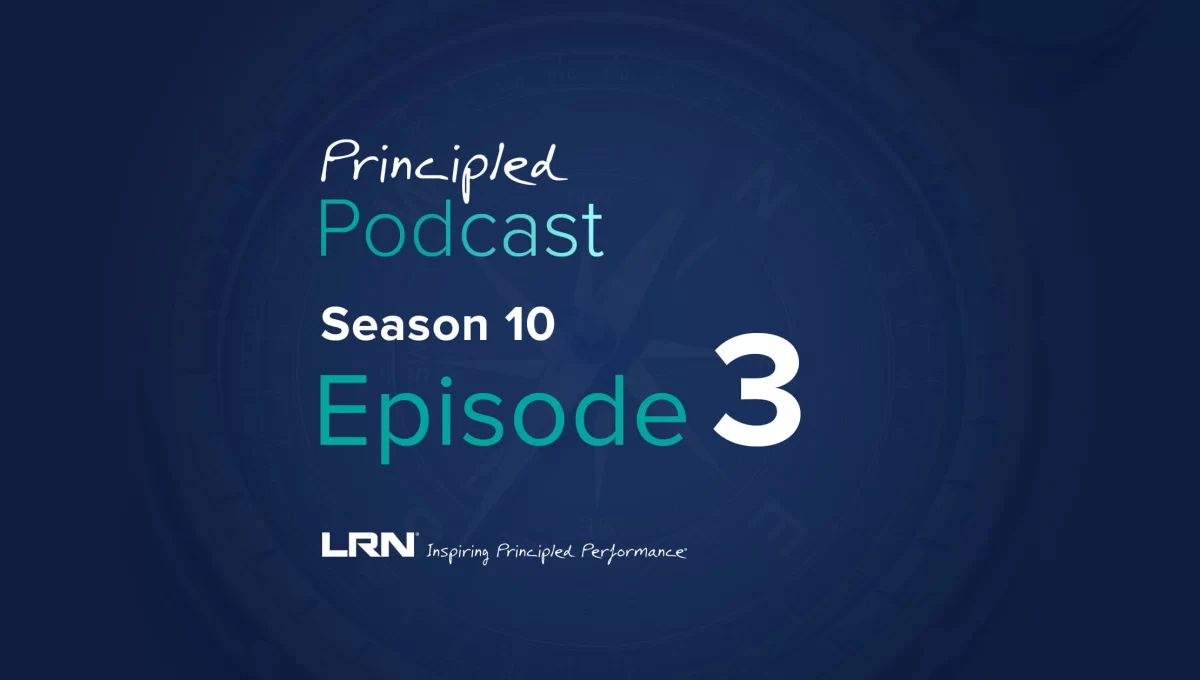We next consider ESG reporting. This may, at first blush appear to be something outside the orbit of the compliance profession, however, upon closer examination, it is precisely what compliance professionals engage in. This is because of my well-known mantra Document, Document, and Document. One of the key reasons to document your compliance regime is that if a regulator ever comes knocking you can show the results to them, in other words, reporting.
One of the current problems around reporting is there is no one worldwide or even US standard. Cueto and Lewis note there are or will be standards from the EU, initiatived by the five widely adopted standard setters, namely SASB, IIRC, GRI, CDP, and CDSB, here referred to as the G-five, World Economic Forum and IFRS. Nasdaq, while not setting mandatory standards said, “Our thinking in this area has been driven by a foundational document, The Model Guidance on Reporting ESG Information to Investors, originally published in 2015 by the UN Sustainable Stock Exchanges Initiative.”
Based on all of these variation, Schneider Electric said, in The Future of ESG Reporting, “As a consequence, different frameworks, standards, ratings and indexes with international recognition have started to guide ESG reporting, and ever since, they have not stopped evolving. These four instruments are complementary and can work in and alongside each other.
- Standards are metrics based on processes that provide specific rules for ESG measurement and disclosure. ESG Standards will dictate what companies must report.
- Frameworks are high-level guidelines that provide principles and guidance for how information should be disclosed.
- Rating agencies develop surveys and methodologies to gather ESG data from different companies.
- Indexes compile data into a single and they represent a particular market or strategy. Indexes allow investors to track the performance of a company concerning their ESG reports.”
Clearly compliance needs to be abreast of many factors when it comes to ESG reporting. Oliver Rowe, writing in Financial Management, cited to Robert Hirth, co-vice-chair of the Sustainability Accounting Standards Board (SASB), who when speaking at the annual AICPA & CIMA CFO Conference, said, “demands from investors, communities, employees, customers, and in some cases suppliers has meant corporate reporting had now permanently expanded to include environmental, social, and governance information.” Hirth added, “ESG matters because companies with good ESG practices have a lower cost of capital, better operational performance, and better share price performance. ESG performance is part of that competition for capital. Companies that take ESG seriously benefit from greater attraction and retention of employees. At some point, every publicly listed organization will more than likely report some form of ESG information.”
Rowe also cited to Martin Farrar, associate technical director–Management Accounting at the Association of International Certified Professional Accountants, for the following, “It’s complicated. All reporting frameworks use different terminology. [They are] not integrated at the moment, [and] measures vary.” Rowe then provided a framework from Hirth and Farrar that a compliance professional could use to think through ESG reporting. It included the following features:
- Understand what your company is already doing on sustainability. This includes monitoring, KPIs and reporting of ESG at your organization.
- Evaluate how the different sustainability standards would apply to your company. Under this point, you should consider what ESG areas you are currently practicing but not calling it ESG. Diversity in hiring, fuel and energy efficiencies, Board diversity and rotation. Institutional justice and institutional fairness. Good corporate governance. These can all be a part of your ESG reporting.
- Look at reporting done by peer companies. Benchmark, Benchmark, and Benchmark.
- Carry out an assessment of stakeholder ESG behaviors. Understand who is driving your ESG journey. There are a wide variety of stakeholders in the ESG journey. It could be shareholders and investors, employees, customers, localities where you do business or even third-party suppliers.
- Build your ESG literacy. Here Rowe pointed to Farrar, who said, “This can also be done by having interdisciplinary conversations outside your organization, including with climate change and biodiversity experts. What are your supply chain companies doing? What’s your sector or industry doing?”
- Don’t regard sustainability as a cost. Much as compliance is not and should not be seen simply as a cost, here Rowe cited to Hirth, who said, “companies should not look at ESG factors as a cost but as a way to focus on some factors that make you a better company, that reduce risk, that [make] you more attractive to customers, to employees, a better supply chain.”
Another approach to begin thinking through your reporting was suggested in a yahoo! article, entitled 6 ESG Questions, which stated, “ESG reports disclose non-financial data that hold companies accountable for issues of ethical concern. Specifically, these reports demonstrate the efforts that organisations make to reduce energy emissions, combat climate change, increase efficiency of waste management, improve employee health and well-being, support diversity, equality and inclusion (DEI), impact the wider community, ensure fair executive pay, on top of other concerns.”
The bottom line is that much of the work done by compliance can be used as a basis from your ESG reporting. From third party risk management reporting to supply chain to gift, travel and entertainment (GTE) these ratings are similar to other risk or performance benchmarking. With all the different standards, there is a wide range of choice as to exact scoring methodologies and frameworks governing ESG reporting, some best practices have emerged:
- Verifiable ESG reporting should follow a specified set of mandatory and voluntary requirements. This allows stakeholders to compare performance and make meaningful decisions.
- Transparency is critical to the process in which some companies emerge as sustainability leaders, others as laggards. As well as this, transparent reporting enables stakeholders to gain a clear picture of a company’s direction and progression.
- For example, a company might not be carbon neutral today but maybe making significant efforts towards this goal. Stakeholders need visibility on the progress, as well as the goals.
Ethixbase has noted that ESG “reporting begins with engrained sustainable business practice. If a company has adopted a resolute attitude towards ESG, this should shine through in performance. As ever, action rings louder than words.” They suggest some ways to improve your ESG reporting.
- Choose the right disclosure framework for your organization and stick to it. This will ensure that your company is taking steps that are recognized as being key to your company’s performance.
- Report on the processes involved, as well as any remediation action, is taken to improve your operations. Methodologies are important to making sound and accurate ESG judgements and careful consideration of these factors lead to better results.
- Integrate ESG data and mindset into everyday business operations. Small actions add up to big changes and can yield demonstrable improvements in performance. As well as this, an ESG mindset enables your organization to create a platform for further activity both internally and in your supply chain.
- Visualize the process of determining your ESG outlook. Analytics and data visualization can help your organisation identify which areas of your business need improvements on ESG topics.
A cornerstone of your ESG program is reporting. But it must be done so with accuracy and with all data verified. The SEC has made clear that unverified claims will not be taken lightly. Moreover, in the court of public opinion severe reputational damage will only be amplified by social media. All of these concerns will be very familiar to the compliance professional. Join me tomorrow where I end this short series on an ESG framework with a discussion of response and enhancement.








